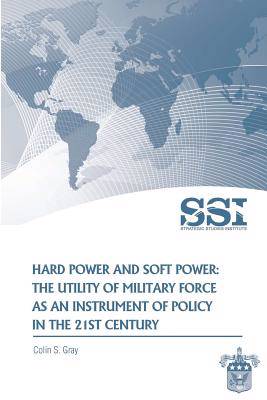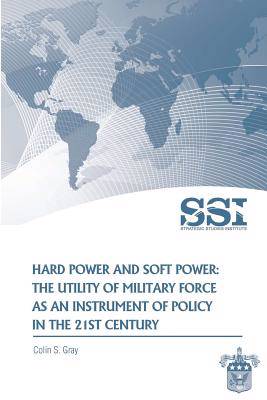
- Afhalen na 1 uur in een winkel met voorraad
- Gratis thuislevering in België vanaf € 30
- Ruim aanbod met 7 miljoen producten
- Afhalen na 1 uur in een winkel met voorraad
- Gratis thuislevering in België vanaf € 30
- Ruim aanbod met 7 miljoen producten
Zoeken
Hard Power and Soft Power
The Utility of Military Force as an Instrument of Policy in the 21st Century
Colin S Gray
Paperback | Engels
€ 22,45
+ 44 punten
Omschrijving
The concept of soft power, that is the influence attained through the co-option of foreigners by the attractiveness of our values, ideas, and practices, understandably has great appeal. Soft power is much cheaper than the hard power of military force, and it is more compatible with the culture of a principally liberal American society. All too often, military force seems to fail as an instrument of policy and, as a consequence, it invites the view that it is becoming obsolescent and even anachronistic. Dr. Colin Gray subjects hard and soft power to close critical scrutiny and finds that the latter is significantly misunderstood and, as a consequence, misassessed as a substitute for the threat or use of military force. Each kind of power has its limitations, but the obvious and familiar challenges characteristic of military force do not mean that therefore soft power should be our policy instrument of choice. The author warns against expecting too much of soft power.
Specificaties
Betrokkenen
- Auteur(s):
- Uitgeverij:
Inhoud
- Aantal bladzijden:
- 70
- Taal:
- Engels
Eigenschappen
- Productcode (EAN):
- 9781477626702
- Verschijningsdatum:
- 8/06/2012
- Uitvoering:
- Paperback
- Formaat:
- Trade paperback (VS)
- Afmetingen:
- 152 mm x 229 mm
- Gewicht:
- 104 g

Alleen bij Standaard Boekhandel
+ 44 punten op je klantenkaart van Standaard Boekhandel
Beoordelingen
We publiceren alleen reviews die voldoen aan de voorwaarden voor reviews. Bekijk onze voorwaarden voor reviews.











